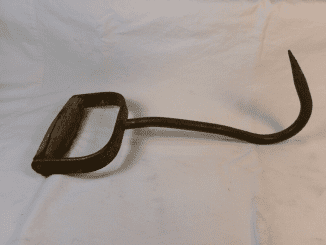
Your kidneys are like the body’s natural filtration system. Every single day, these two bean-shaped organs filter around 50 gallons of blood and help remove waste, excess fluids, and toxins through your urine. Pretty amazing, right?
But when your kidneys get overwhelmed—whether from poor diet, dehydration, or unhealthy habits—they may start to slow down, allowing toxins to build up. This can affect your energy, skin, digestion, and overall health. The good news? There are several natural and simple ways to support your kidneys and give them a gentle detox.
Let’s dive into the best methods to keep your kidneys clean, healthy, and functioning at their best.
1. Stay Hydrated – But Don’t Overdo It
The number one rule of kidney health? Water, water, and more water. Proper hydration helps your kidneys flush out sodium, urea, and other toxins from your body. Without enough water, waste builds up and kidney function declines.
You don’t need to drown yourself in gallons—just aim for 6–8 glasses a day, depending on your activity level, climate, and body size. The easiest way to check? Your urine should be pale yellow. If it’s dark or smells strong, you’re likely dehydrated.
2. Eat More Kidney-Friendly Foods
Some foods are especially good at supporting kidney health and detox:
- Cranberries: They help prevent urinary tract infections, which can travel to your kidneys if untreated.
- Blueberries: Packed with antioxidants that reduce inflammation and protect kidney cells.
- Beets: Contain nitrates that improve blood flow and reduce blood pressure, which supports kidney function.
- Lemon water: The citric acid helps prevent kidney stones by increasing urine volume and citrate levels.
- Leafy greens: Spinach, kale, and arugula are rich in magnesium and potassium, which help balance minerals in the kidneys.
Just be mindful if you already have kidney disease—some foods high in potassium or phosphorus might not be suitable without medical advice.
3. Cut Back on Salt and Processed Foods
Too much sodium in your diet makes your kidneys work overtime to remove the excess. It also raises your blood pressure, a major contributor to kidney damage.
Start by reading labels, cooking more meals at home, and swapping salty snacks with fruits or raw nuts. You’d be surprised how quickly your taste buds adjust!
4. Avoid Excessive Use of Over-the-Counter Painkillers
NSAIDs like ibuprofen and naproxen might relieve your headache or back pain, but they’re not so friendly to your kidneys—especially when used frequently or in high doses.
Chronic use of these meds can reduce blood flow to the kidneys and lead to kidney damage over time. Always follow dosage instructions and consult your doctor if you rely on painkillers often.
5. Drink Herbal Teas That Support Kidney Function
Several herbs have been traditionally used to cleanse and support the kidneys:
- Dandelion root tea: A natural diuretic that increases urine output and helps flush out toxins.
- Nettle leaf tea: Supports urinary tract health and contains antioxidants.
- Parsley tea: Known for its detoxifying properties and support for kidney function.
- Ginger tea: Helps reduce inflammation and supports digestion and blood flow.
Sip these teas a few times a week—not all at once. Moderation is key, and always check with a healthcare provider if you’re on medications or have a chronic condition.
Video : 7 Ways to Detox and Cleanse Your Kidneys Naturally
6. Get Moving – Exercise Helps Detox
Physical activity improves circulation, lowers blood pressure, and supports overall organ function—including your kidneys. Sweating also helps eliminate waste products, giving your kidneys less to handle.
You don’t need to run a marathon. A brisk 30-minute walk, yoga session, or light strength training a few times a week can do wonders.
7. Say No to Smoking and Limit Alcohol
Smoking reduces blood flow to the kidneys and can worsen existing kidney problems. Alcohol, especially in excess, dehydrates you and puts strain on your organs.
If you drink, do so in moderation. For most people, that means no more than one drink per day for women and two for men. Better yet, give your kidneys a break with alcohol-free days during the week.
8. Try a One-Day Kidney Cleanse (Occasionally)
A simple one-day cleanse can give your kidneys a gentle reset. Here’s an example of a natural kidney detox day:
- Morning: Start with warm lemon water on an empty stomach.
- Breakfast: Smoothie with blueberries, banana, spinach, flaxseed, and unsweetened almond milk.
- Lunch: Quinoa bowl with beets, cucumbers, parsley, and lemon-olive oil dressing.
- Snack: Apple with a handful of raw walnuts.
- Dinner: Steamed veggies with brown rice and baked salmon or tofu.
- Throughout the day: Drink plenty of water, herbal teas, and avoid caffeine, sugar, and processed foods.
This kind of reset isn’t about starving yourself—it’s about fueling your body with clean, kidney-supporting foods.
9. Get Quality Sleep
Your kidneys, like every other part of your body, repair and recharge during sleep. Poor sleep has been linked to reduced kidney function and higher blood pressure.
Aim for 7–9 hours of uninterrupted sleep per night. Keep your bedroom dark, cool, and quiet, and avoid screens at least 30 minutes before bed.
10. Manage Stress
Chronic stress increases cortisol and adrenaline, which can negatively affect your blood pressure and kidney health. Over time, it contributes to inflammation and poor circulation.
To lower stress naturally, try meditation, deep breathing exercises, stretching, or simply unplugging from your phone for an hour a day. Even a short walk in nature can help reset your mind—and your kidneys will thank you for it.
Video : The Best Foods to Cleanse & Repair Your Kidneys | Dr. Mandell
Conclusion
Your kidneys are hardworking organs that rarely complain—until things get serious. That’s why it’s so important to care for them proactively. Luckily, kidney detoxing doesn’t mean expensive treatments or trendy juices. It’s about daily choices that support your body’s natural cleansing system.
By drinking more water, eating kidney-friendly foods, staying active, and managing stress, you give your kidneys the tools they need to thrive. These small shifts can have a big impact—not just on your kidney health, but on your energy, digestion, skin, and overall well-being.
So, don’t wait for a wake-up call. Start showing your kidneys some love today—they’ve been looking out for you all along.


